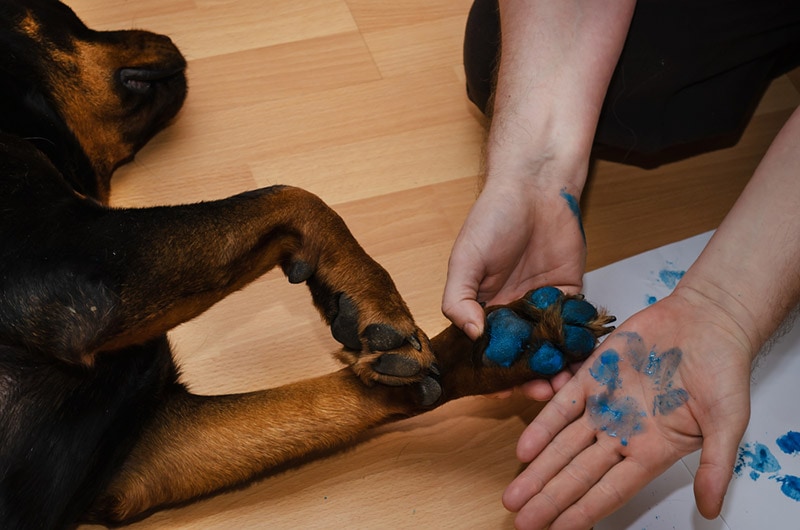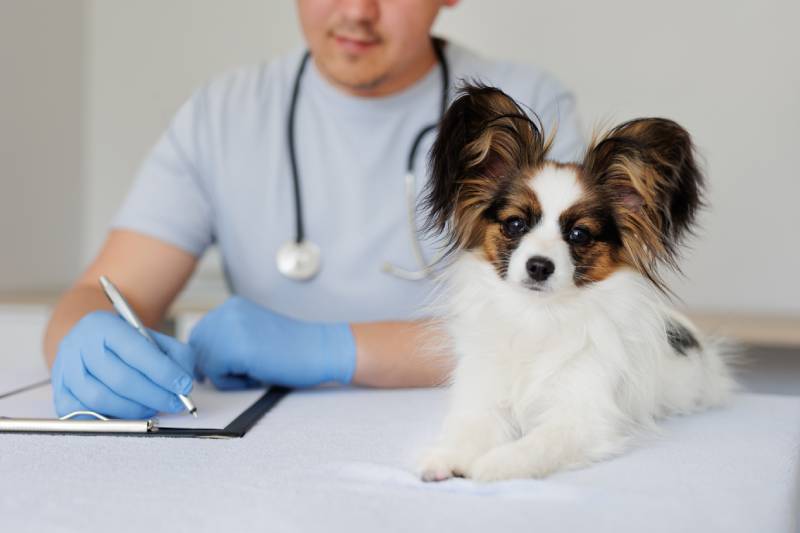How to Prevent Your Dog From Being Stolen: 20 Top Tips!

Updated on
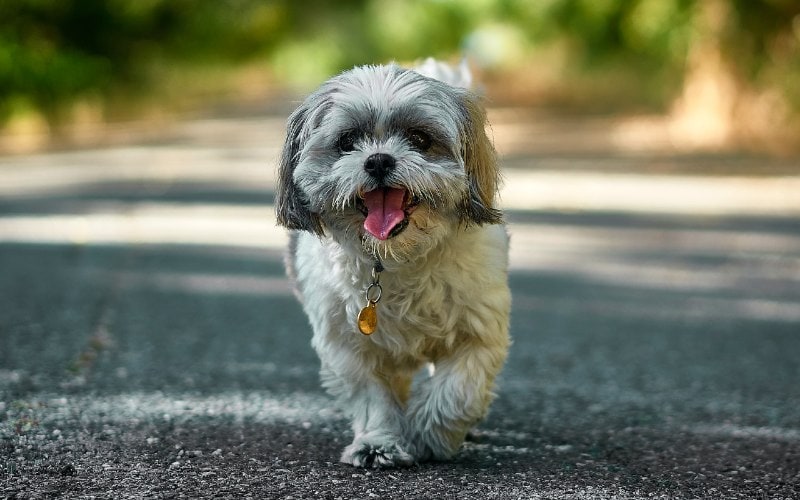
A nightmare for all dog owners is having their beloved dog taken from them. Dognapping is an increased problem in the pet community, with almost 2 million dogs stolen every year in the United States alone. Dog thefts are also reported to have increased by up to 250% during the Covid-19 pandemic in 2020. Sadly, only around 10% of stolen dogs are reunited with their dogs.
As dog parents, our furry friends have become part of our family. Many dog breeds are considered high-value due to their price and rarity, which gives dognappers more than enough reason to steal dogs.
Having your dog stolen can be an emotional and heartbreaking experience. So to help us protect our dogs, here are 20 tips to keep our furry friends safe from dognapping!
The 20 Tips to Prevent Your Dog From Being Stolen
1. Keep Your Dog’s ID Tag Updated
The first and most obvious form of identification your dog can have is their ID tag. Typically, ID tags would contain their name and the contact details of their owner. Some ID tags also have the name of their owner, as well as their address. It is important to keep your dog’s ID tag updated for quick identification in case they get lost and are later found by a kind soul!
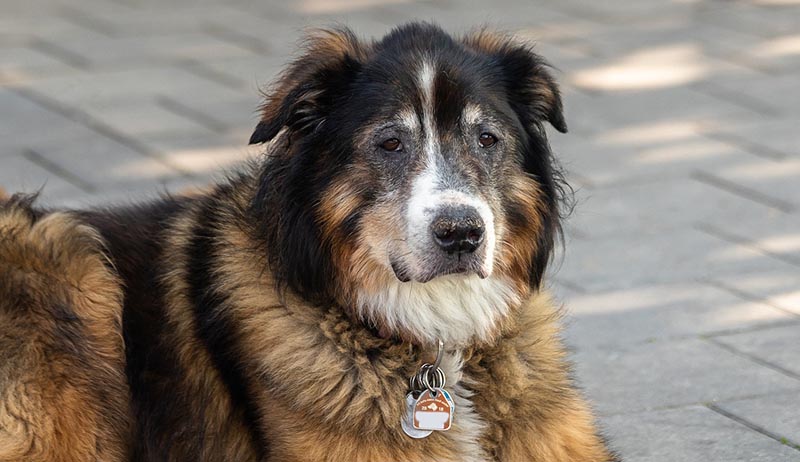
2. Microchip Your Dog
While the ID tag is the first and most obvious form of identification, these can be easily removed by dognappers. Putting a microchip on your dog is the ultimate proof of ownership. The microchips can easily be scanned by veterinary facilities revealing their registration and ownership details.
Aside from updating your dog’s ID tag, keeping your registration information in the database is also recommended!
3. Put GPS Trackers On Your Dog’s Collar
With the advent of technology, dogs are able to wear GPS trackers on their collars. This allows their owners to monitor their location, especially if they simply wander away from their homes. The location information provided by your dog’s GPS tracker can definitely come in handy should your dog get stolen.
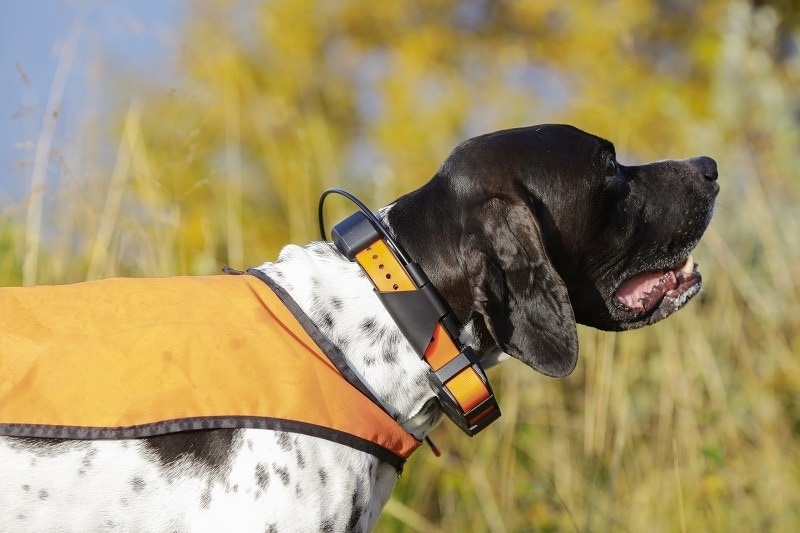
4. Secure Your Property
Whether your dog is an indoor or outdoor dog, it is always best to keep your property safe and secured. If your dog is indoors, ensure that the locks and doors are properly closed to prevent your dog from escaping, as well as preventing theft.
If you keep your dog outside in the garden or the backyard, make sure the gates or fences are properly secured. In addition, try to keep the garden or yard areas where you keep your dog more private to outsiders. Even if your dog is more comfortable outdoors, it is best to keep them indoors when there are no other people at home.
5. Keep Your Dog Supervised
If you keep your dog outdoors in the garden or in the yard, it is best to keep them visible. Place windows or ensure that they are in a position where they can easily be monitored.
If you take your dog to public places where they can move without a leash, like the dog park, it is important to keep a watchful eye on them even if you are with other dog owners.
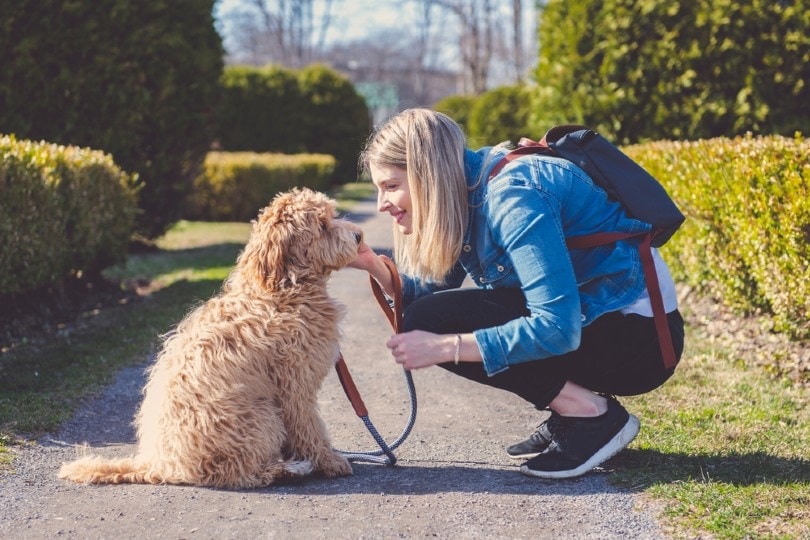
6. Make Sure Your Dog is Properly Trained
Your dog’s training can also potentially keep them from getting stolen. An important skill your dog should learn is their ability to return to you when you call. This recall skill can prevent your dog from wandering out of sight when they are at the park or during walks.
Once you are confident that your dog has mastered the recall signal, you can give them more freedom with the extending lead.
7. Avoid Routine Walking Routes and Schedules
Routines and patterns can easily be monitored for those who intend on stealing dogs. When taking your dog out for a walk, having multiple walking routes can keep your dog’s daily walk routine unpredictable. While difficult, changing up the time of day when you walk your dogs is also recommended to keep your routine harder for strangers to monitor.
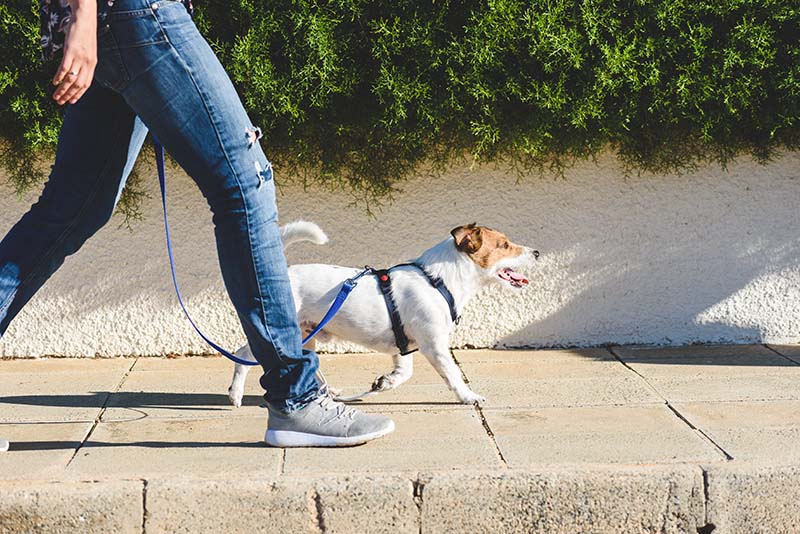
8. Do Not Walk Alone
For increased safety during walks, try walking with a friend or as a group. Walking with the company of another person can greatly reduce the chances of your dog being snatched during walks due to safety in numbers!
9. Stay Vigilant of Your Surroundings
When out with your dog, it is important to stay vigilant. Stay focused on your dog and be aware of your surroundings. This is especially important for smaller dogs, as they are easier to snatch, as well as in public places with many people.
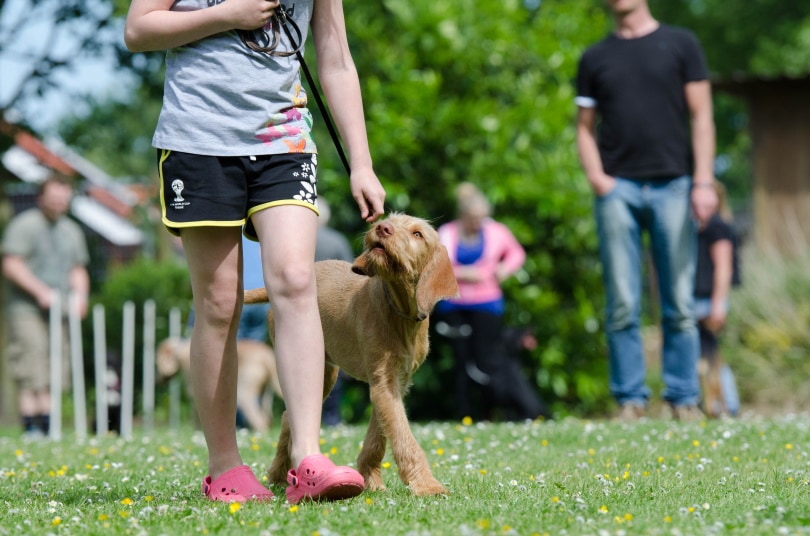
10. Report Any Suspicious Activities
As dog owners, there is an unspoken rule that we should help and look out for other fellow dog owners. Should you observe any suspicious activities in certain areas, it is best to report it to the police immediately. The sooner your report activities, the less chances are that incidents will occur in the area!
11. Stay Up-to-Date Regarding Suspicious Activities in Your Area
It is also important that you stay updated with pet-related incidents and reports in your area. This can give you an idea regarding places to avoid in order to keep your dog safe.
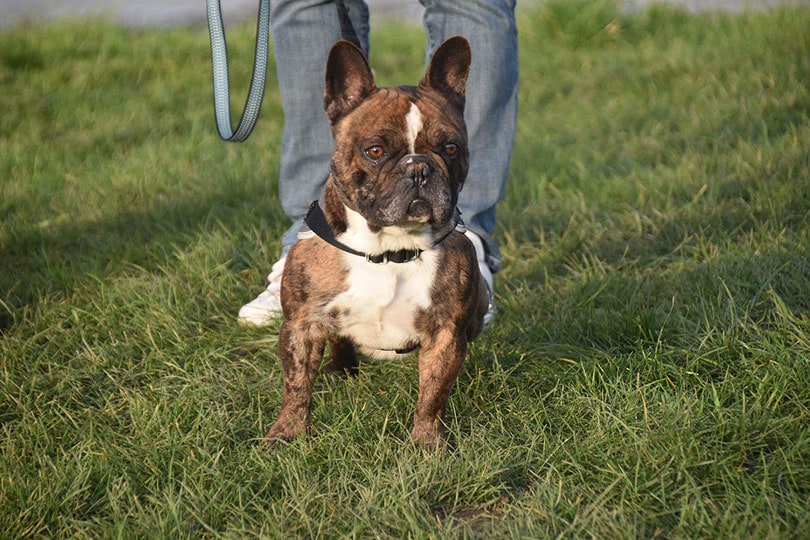
12. Be Wary of Strangers
When owning a dog, it is common for strangers to respectfully approach you and pet your dog. Many people can simply find interest in your dog and approach you out of pure fascination. While this may be harmless most of the time, it is still important to stay wary and cautious around these strangers. Be careful with the information you divulge, and continue to maintain your focus on your dog. Remember—stranger danger!
13. Do Not Leave Your Dog Tied Outside of Stores
When taking your dog out for walks, there may be instances in which you have to go inside a store to buy something. It is best not to tie your dog outside alone while you enter the store. Dogs left alone in public are much easier to dognap as they are left unattended.
If you really need to enter a store during a walk, it is best to bring your dog in the store or bring a companion to watch over your dog while they wait outside.
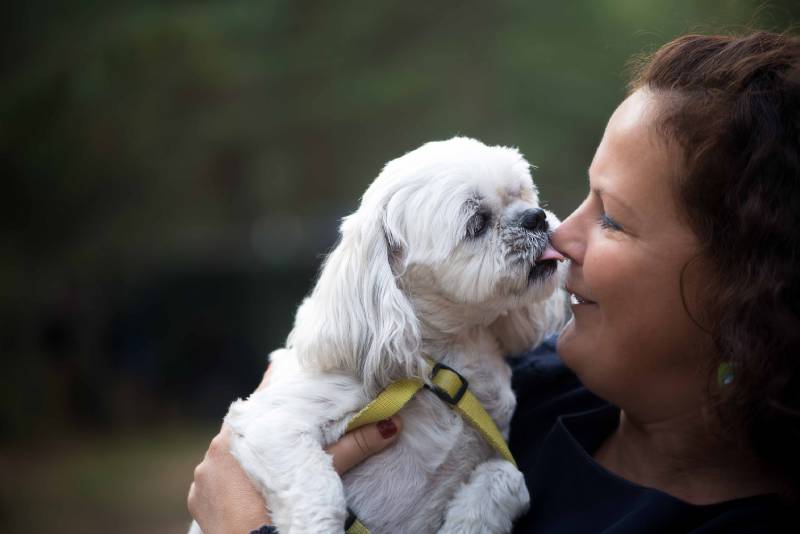
14. Do Not Keep Your Dog Alone in the Car
Another common situation dogs are left alone and unattended in public is when left alone in the car. Your dog remains vulnerable in the car, and you also run the risk of having valuables in the car stolen. Not only does this make them much easier to steal, it also puts them at risk for overheating as the temperature rises in the enclosed car.
15. Background Check Dog Sitters, Groomers, and Other Services
Before employing dog services, such as dog sitters, walkers, groomers, and trainers, make sure they are credible. Review their identification and references before entrusting your pet. The safest way to go is to ask for recommendations from people you trust, such as close friends or your veterinarian.

16. Take Lots of Photos of Your Dog
As dog owners who absolutely adore our fur babies, our phones and cameras are surely filled with pictures of our dogs. Aside from preserving memories with your dog, this also helps in identifying your dog should they get lost. Taking a lot of clear photos at different angles can help in identifying lost or stolen dogs!
17. Be Careful With Your Dog’s Information on Social Media
In addition to taking photos, many of us may show off our dogs on social media. While it is common for dogs to be all over social media pages, it is recommended to control the information being shown on social media. Owners should also control the privacy geotags and location pins when taking their dog out, as this information can be easily monitored by strangers.
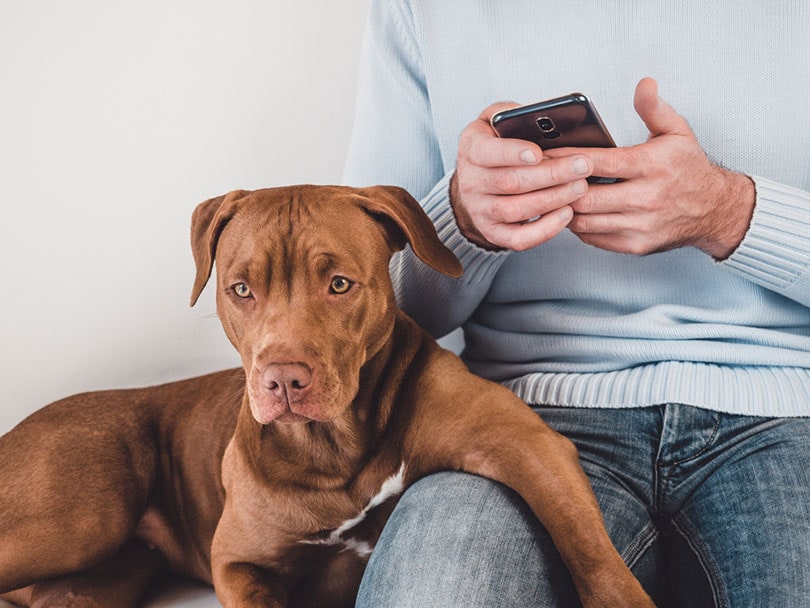
18. Neuter or Spay Your Dog
Neutering or spaying your dog can also reduce the likelihood of your dog getting stolen. Many dognappers that steal dogs have the intention of breeding them for the sake of profit. If your dog is neutered or spayed, this will no longer be possible and dognapping for that purpose will be unlikely.
19. Assign Dogs to Household Members
For households with multiple dogs, sometimes it can be difficult to keep track of all these fur babies running around. To keep each of them supervised, it is recommended that each dog is assigned an “owner” in the household that is responsible for looking after the dog. This helps ensure that every dog in your family is well-attended and safe!
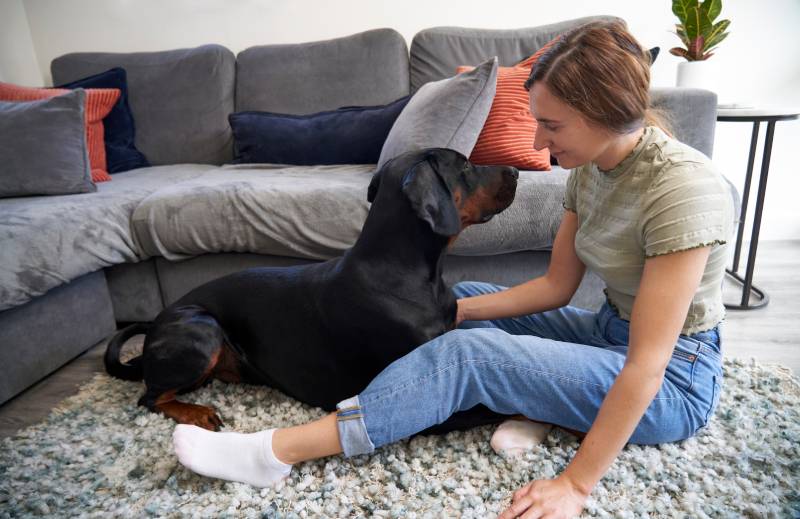
20. Stay Extra Vigilant with Puppies
Puppies are much easier to steal as they are tiny, have no microchip nor identification, and also have a change in appearance as they get older. Take extra care of your puppies by keeping them supervised and indoors at all times.
If you are selling your puppies, control the number of people visiting your puppies, as this makes it easier to watch over them when visitors are present.
- Related Read: 10 Shocking Dognapping & Dog Theft Statistics & Facts
What to Do If Your Dog Gets Stolen?
If you suspect that your dog is lost or stolen, taking immediate action is the best way to increase the chances of finding them.
- Contact and report the incident to the police immediately.
- Report the incident to the microchip database immediately.
- Contact “found pets” listings.
- Visit neighbors or friends around the area and inform them of the incident.
- Increase awareness of your lost dog through posters, social media posts, and local pet shelters and rescue centers.
Final Thoughts
As members of the family, having your dog stolen can be an emotional and traumatic experience. With dog theft getting increasingly more common, safety measures and tips must be employed as pet owners to keep our dogs safe.
Dogs are part of the family, and dognapping is a nightmare for any dog owner. As dog parents, the last thing that we want is something bad to happen to our dogs, and it is our responsibility to ensure that they are kept safe and happy!
Featured Image Credit: Nikolay Tchaouchev, Unsplash

